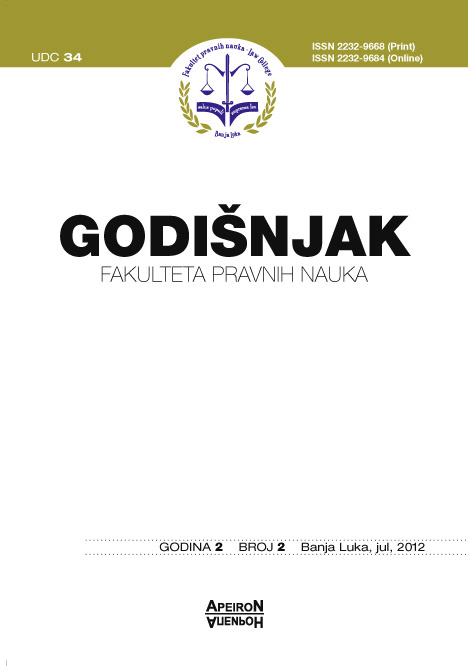Notarial will / Testament sačinjen pred notarom
DOI:
https://doi.org/10.7251/GFP1202252RAbstract
As part of the general reform of Civil Legislation in 2004, the institute of a Notary was introduced into the legal system of the Republic of Srpska. By introducting notariate the primary goal of the legislator was to unload the courts, i.e. to transfer certain activities from the jurisdiction of the courts to notaries. With that in mind, one of more significant activities the court can assign to notaries is composing wills. Notarial will has the significance of a public will, since, inter alia, in the process of its composition provisions of the Inheritance Act are applied which refer to court will, unless the Notaries Act prescribes otherwise. This means that the Inheritance Act is lex generalis in relation to the Notaries Act. In the process of composing a will in the form of a notarial will, the Notary must establish whether all the statutory conditions, providing its validity, are fulfilled. These conditions can be borne by the Notary (the power to compose the will, who can compose the will on his behalf, etc. ) or by the testator (identity of the testator, testating capacity, identity witnesses, and witnesses to the will, interpretors, etc.).Downloads
Published
2012-07-15
Issue
Section
Чланци
